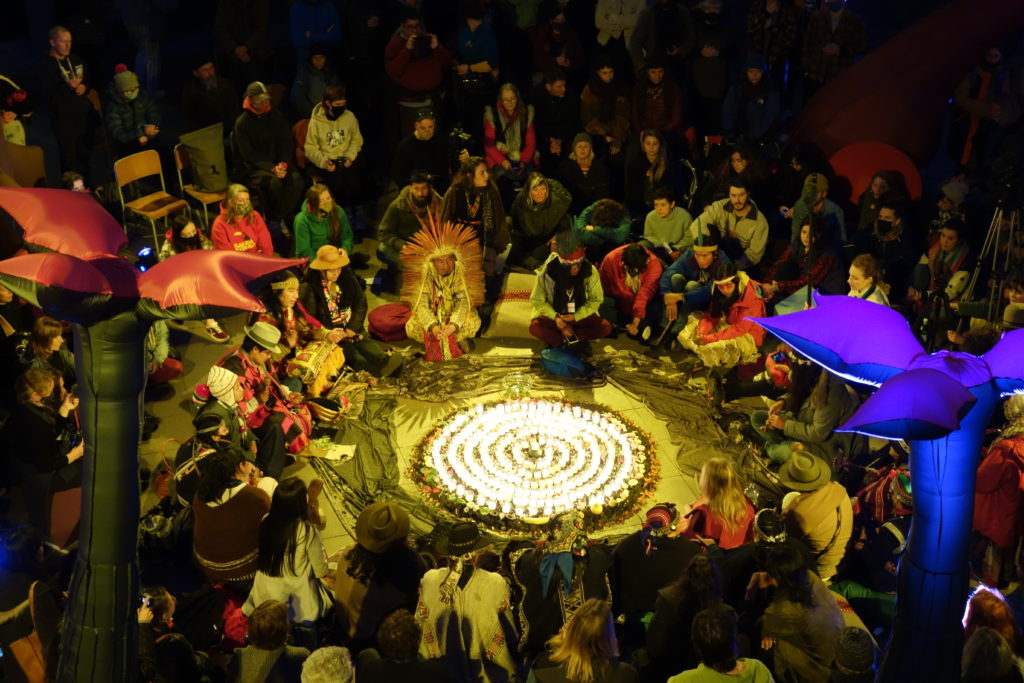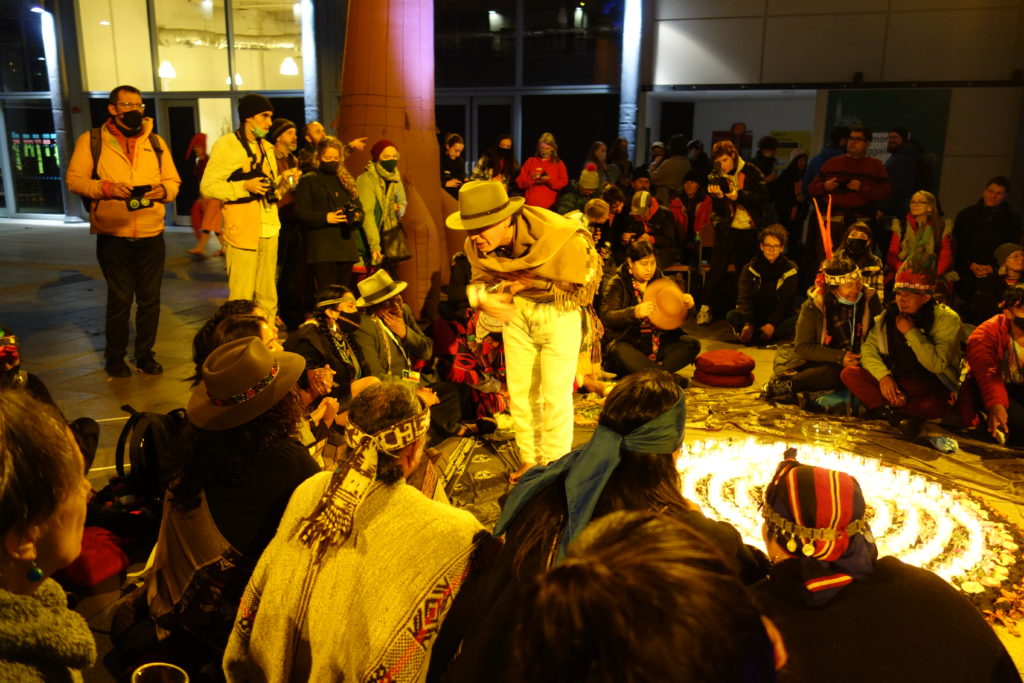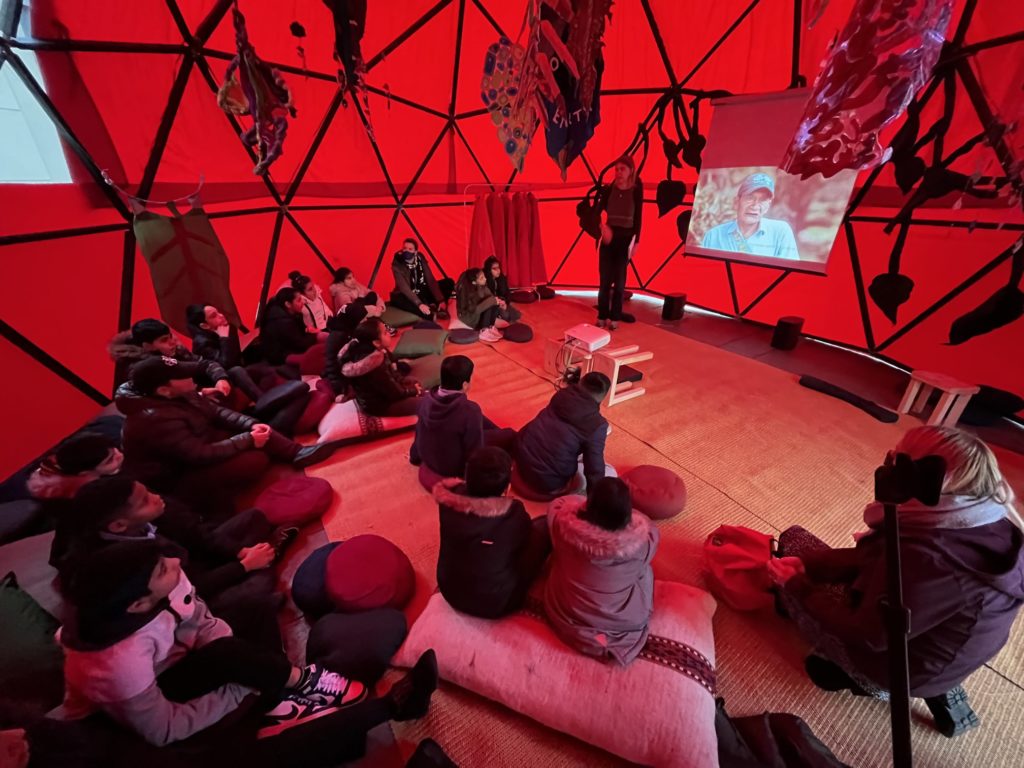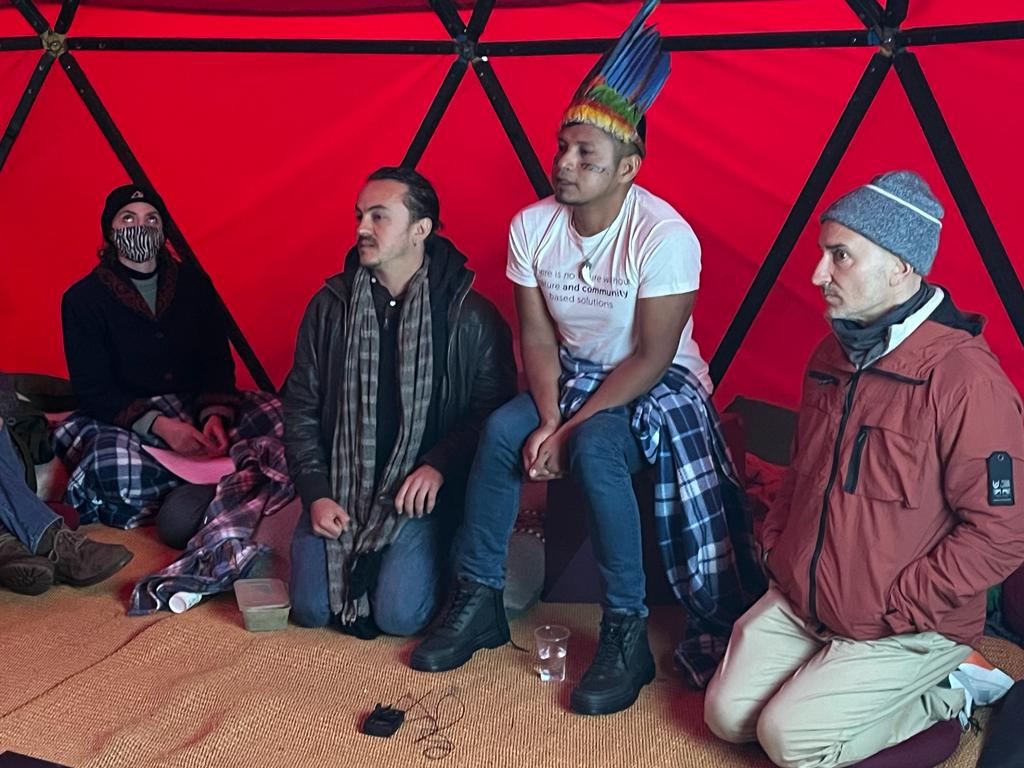As COP26 comes to an end, Anna Fleming is united with strangers from across the continents; shared concern for the Earth expressed through conversation, dance, performance, protest and music.

Inside the Encampment of Eternal Hope, people gather among giant inflatable flower sculptures. Smaller groups cluster within the red dome, resting on cushions to watch films; larger gatherings circle around the candle-lit altar-campfire at the centre of the Briggait.
In this space, strangers from across the continents meet and find common ground. Among the hundreds of people, there are folk from Patagonia, Colombia, Mexico, Peru, Brazil, Scotland, Wales, England, Germany and Sweden. A concern for the Earth and our place upon it brings us all together – and through conversation, dance, performance, protest and music, we find ways to express and explore that passion.
A programme of talks called Possible Dialogues is delivered in partnership with Más Arte Más Acción, a cultural organisation based in the Chocó forest in Colombia. The aim is to give a platform for people whose voices are too often silenced, setting the stage for a truly remarkable insight into different world views. We hear from many indigenous speakers, for whom the talk programme is kept deliberately fluid – with visa, transport, COVID and accommodation issues, as well as language and cultural differences, a rigid agenda is impossible.

No one reads from prepared papers. In these discussions, our indigenous guests speak from head and heart. They always begin by thanking their elders and ancestors. “I am not here alone,” says Hector Fabio Yucuna Perea, a youth leader from the Organization of Indigenous Peoples of the Colombian Amazon, “I am here with all my ancestors, elders and people to share our sacred message.” In the face of such profound collectivism, our culture of individualism is suddenly exposed and looks sadly impotent.
Narubia Werreria, a youth activist from the rainforest in Brazil, calls over a group of school children to leave off their craft activities and join our conversation. Narubia is one of the People of the Water and Sky, she explains, and in her community, children are royalty. “The children command because they are bringing the new life.” In simple language, translated into English, she opens out the united vision of the world shared by all indigenous people:
“The land is our Mother. Nobody can be owner of the Mother. She provides and sustains us. So we must take care of her. This is the same for all indigenous people. But the colonisers are the opposite of this. They try to profit from the land. Earth is ours in love not in domination.”

After the conversation, Narubia gives every child a hug and through her words and actions, we feel the spark of a very old and simple magic: the animating touch of contact, camaraderie and live human connection.
This work is all about building bridges – not of the concrete kind – but of something more fundamental. We hear how ancestral knowledge needs to be bridged with modern science and culture, and vice versa for, as Erna von der Walde, Colombian activist and cultural critic explains, there is no indigenous knowledge on how to take away mercury. The indigenous leaders call on us to work together to use our human ingenuity to solve this crisis. It is time to listen and time to act. After all, a young man has travelled halfway across the world to remind us:
“A threat to the Amazon is a threat to life itself.”
